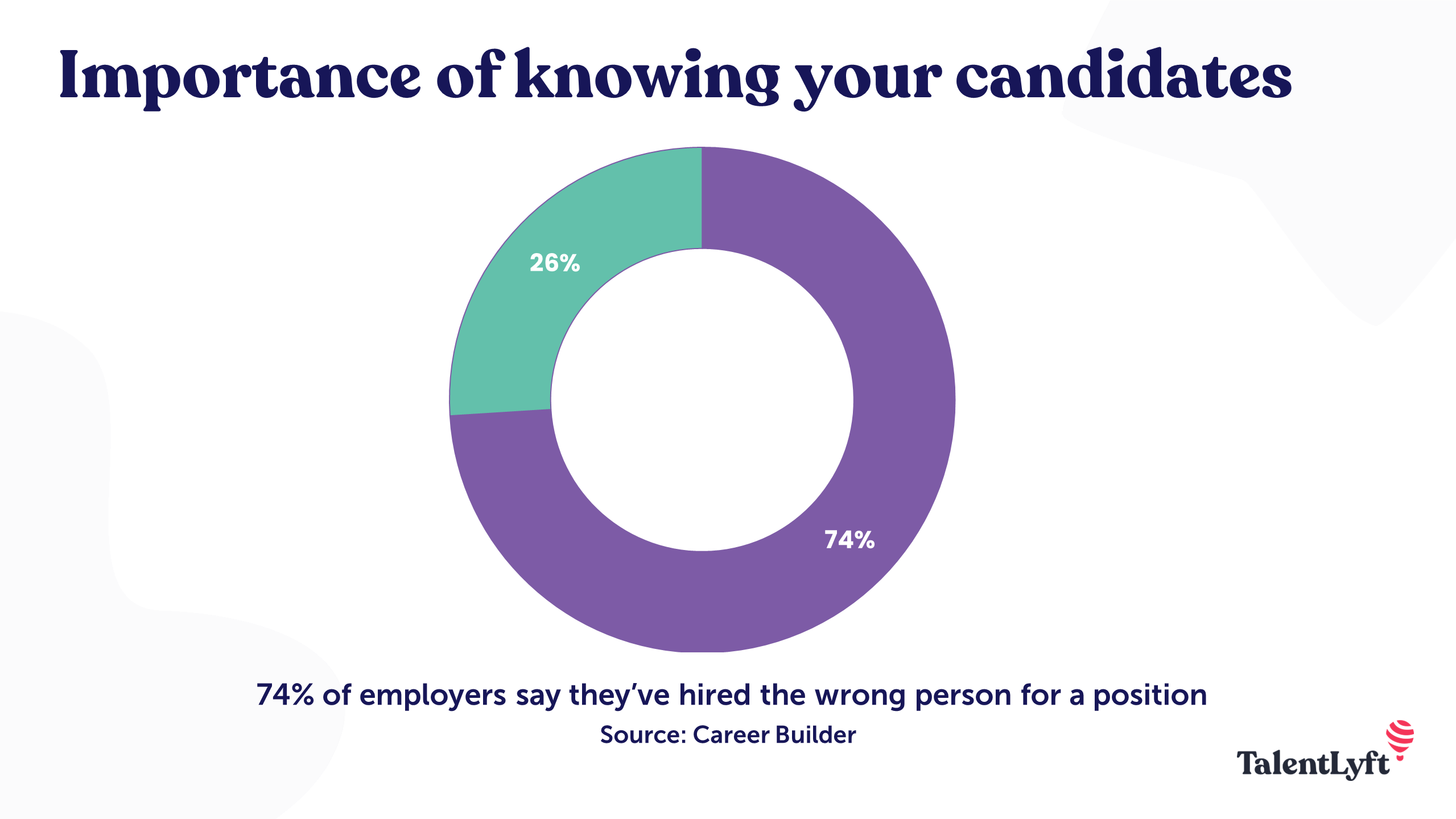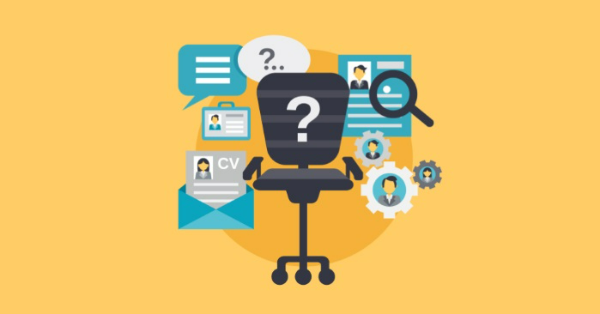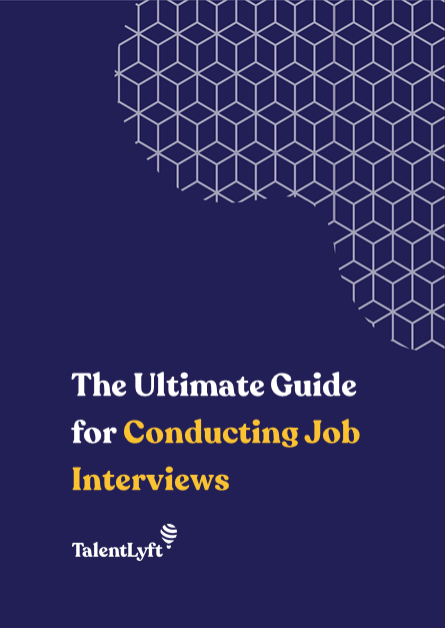![https://adoptoprod.blob.core.windows.net/article/9eDXnQxOUE2yeI7Qlm6dcg.png]()
The Importance and Goal of Strategic Questions
Strategic interview questions are crafted with the goal of assessing a candidate's ability to think critically, communicate effectively, and demonstrate relevant skills and experiences. While basic interview questions provide an initial overview, strategic interview questions dig deeper, enabling recruiters to evaluate a candidate's suitability for a specific role and organizational culture.
These questions help uncover a candidate's problem-solving capabilities, adaptability, leadership potential, and alignment with the company's values and goals. By utilizing strategic questions, interviewers can gather valuable insights that go beyond a candidate's resume, facilitating a more holistic evaluation and ensuring the selection of the most qualified and well-suited individuals.
Choosing the right questions
As an employer or a recruiter preparing to interview candidates, it's essential to ask yourself several key questions to help determine what questions to ask candidates. Here are some questions to consider:
What are the key requirements and responsibilities of the role?
Reflect on the specific skills, qualifications, and experience necessary for the position.
What attributes and qualities are important for success in our company culture?
Consider the values, work environment, and team dynamics within your organization.
What challenges and opportunities are associated with the role?
Identify the specific challenges the candidate will face and the opportunities they will have to contribute.
What specific knowledge or expertise is essential for the position?
Determine the technical or industry-specific knowledge required for the role.
·What behavioral competencies are important?
Consider the desired competencies such as problem-solving, communication, teamwork, adaptability, and leadership.
What are the organization's long-term goals and objectives?
Reflect on the strategic direction and future plans of the organization.
What are the potential growth opportunities for the candidate within the company?
Evaluate the potential for career development and advancement for the successful candidate.
What are the cultural and diversity considerations?
Consider the importance of diversity, inclusion, and cultural fit within your organization.
What questions will help me assess the candidate's past performance and accomplishments?
Identify the areas where you need more insights, such as their ability to handle specific challenges or achieve specific results.
How can I evaluate the candidate's motivation and passion for the role and the organization?
Determine how to gauge their genuine interest and alignment with the position and company.
What about other skills?
Try to gain insight into a candidate’s skills and abilities like critical thinking, communication skills, and ability to adapt.
30 questions to ask candidates
Once you know exactly what you’re looking for in a candidate it is time to choose the interview questions that will help you choose the right person for the role and your company. Here are 30 strategic interview questions you can choose from to use in your job interviews and find the candidates you’re looking for.
General strategic interview questions
1. How do you define success in your career?
This question helps you understand the candidate's personal definition of success and what they prioritize in their professional life. It provides insights into their goals, values, and aspirations.
2. What motivates you in your work?
Understanding what motivates the candidate gives you insight into their intrinsic drivers and what fuels their passion for their work. It helps you assess their alignment with the role and the potential for long-term engagement.
3. What interests you the most about this position?
By asking this question, you can gauge the candidate's level of enthusiasm and interest in the specific role and company. It helps you assess if they have done their research, understand the job requirements, and if they see it as a good fit for their skills and career goals.
4. Tell me about a professional accomplishment you're proud of and why.
This question allows the candidate to share a specific achievement from their professional history. It helps you assess their abilities, problem-solving skills, and the impact they have made in their previous roles. It also provides insight into their values and what they consider meaningful accomplishments.
5. What are your strengths and weaknesses? Is there a strength you consider your superpower?
By asking this question, you gain insight into the candidate's self-awareness and ability to assess their own abilities. It helps you assess if their strengths align with the requirements of the role and how they handle challenges. Additionally, their identified superpower can provide insight into the unique skills they bring to the table.
6. Are you comfortable working independently or do you prefer working in a team?
This question helps you determine the candidate's working style and preference for collaboration. It allows you to assess their adaptability and fit within your team dynamics and work environment.
7. What is your ideal company culture?
By asking this question, you can understand the candidate's preferences in terms of work environment, values, and company culture. It helps you assess their compatibility with your organization and if they would thrive in your specific work culture.
Need more specific questions?
Explore our job interview questions templates and find great examples of problem-solving, cultural fit, communication skills, critical thinking and other types of interview questions as well as over 650 job-specific templates!
Explore other questions! Behavioral Strategic Interview Questions
8. How would you approach a complex problem at work? Tell me about a time you had to do that.
This question assesses the candidate's problem-solving skills and their ability to tackle complex challenges. It provides insights into their analytical thinking, strategic approach, and their ability to navigate and resolve complex issues.
9. Give an example of a time when you faced a challenging deadline. How did you manage it?
This question helps you evaluate the candidate's ability to handle pressure and meet deadlines effectively. It allows you to assess their time management skills, prioritization abilities, and approach to working under tight time constraints.
10. How do you handle ambiguity or uncertain situations in the workplace? Give an example of a time when you had to adapt to a major change at work.
This question allows you to assess the candidate's adaptability and flexibility in dynamic work environments. It helps you understand how they handle ambiguity, their ability to adjust to change, and their approach to solving problems in uncertain situations.
11. Imagine you have conflicting priorities from different team members. How would you handle it?
This question assesses the candidate's ability to manage conflicting demands and navigate interpersonal dynamics. It helps you evaluate their communication skills, negotiation abilities, and their approach to resolving conflicts while maintaining productivity and team cohesion.
12. How would you handle a difficult client or customer?
This question allows you to evaluate the candidate's customer service and relationship management skills. It helps you understand their ability to handle challenging situations, manage expectations, and find solutions to ensure client satisfaction.
13. Share an experience where you demonstrated strong leadership skills. How did you motivate and guide others toward a common goal?
This question assesses the candidate's leadership abilities and their capacity to inspire and motivate others. It helps you gauge their communication skills, ability to delegate tasks, and approach to fostering collaboration and achieving shared objectives.
14. Tell me about a time when you set a goal for yourself and achieved it successfully.
This question allows you to assess the candidate's goal-setting abilities and their commitment to personal growth and development. It helps you understand their self-motivation, determination, and their ability to follow through on their objectives.
15. Describe a time when you took the initiative to improve a process, system, or workflow. What steps did you take, and what were the results?
This question assesses the candidate's proactiveness and their ability to identify opportunities for improvement. It helps you understand their problem-solving skills, creativity, and their track record of making positive changes in the workplace.
Looking for more behavioral interview questions?
Get more great interview questions examples and find out more about their use in this short guide!
Learn more behavioral questions! Situational Strategic Interview Questions
16. Can you share an example of a project or task where you had to juggle multiple priorities and deadlines? How did you manage your time and ensure successful completion?
This question helps you assess the candidate's multitasking and time management skills. It allows you to understand how they prioritize tasks, organize their workflow, and ensure timely completion of projects while handling multiple competing demands.
17. If you were given an opportunity to improve a specific process in the company, how would you approach it?
This question assesses the candidate's problem-solving abilities and their proactive mindset. It helps you understand their critical thinking skills, their capacity to identify inefficiencies, and their ability to propose effective solutions to streamline processes and enhance productivity.
18. If you were given multiple tasks with tight deadlines, how would you prioritize them?
This question allows you to evaluate the candidate's ability to handle high-pressure situations and manage their workload effectively. It helps you understand their decision-making process, their ability to assess task importance and urgency, and their strategies for meeting deadlines while maintaining quality.
19. Imagine you are working on a project with a tight budget. How would you ensure cost-effective results?
This question assesses the candidate's financial acumen and ability to work within budgetary constraints. It helps you gauge their resourcefulness, ability to find cost-effective alternatives, and skills in optimizing resources to achieve project goals efficiently.
20. Describe a situation when you had to use an unorthodox approach to solve a problem.
This question allows you to evaluate the candidate's creativity and innovation in problem-solving. It helps you understand their ability to think outside the box, their openness to unconventional solutions, and their capacity to adapt their approach to unique challenges.
21. Describe a situation where you had to handle a crisis or unexpected challenge.
This question helps you assess the candidate's resilience and ability to handle adversity. It allows you to understand their composure under pressure, their problem-solving skills in high-stress situations, and their capacity to navigate and resolve unexpected challenges effectively.
22. Give an example of a time when you had to make a tough decision with limited information. How did you handle it, and what was the outcome?
This question assesses the candidate's decision-making skills and their ability to think critically in ambiguous situations. It helps you understand their ability to analyze available information, make informed decisions, and manage the consequences of their choices.
23. Describe a situation where you had to work as part of a team to achieve a goal.
This question allows you to evaluate the candidate's teamwork and collaboration skills. It helps you understand their ability to communicate, cooperate, and contribute effectively in a team setting, as well as their approach to building consensus and achieving shared objectives.
Looking for more situational interview questions?
Get more situational interview questions examples and find out more about their use in this short guide!
Learn more situational questions! Role-Specific Strategic Interview Questions
24. Can you provide an example of a successful project you completed that had a significant impact on the organization?
This question allows the candidate to showcase their past achievements and their ability to drive impactful projects. It helps you assess their record of delivering results, their problem-solving skills, and their capacity to make a meaningful contribution to the organization.
25. What qualities do you think a successful [role name] should have?
This question gives insight into the candidate's understanding of the role they are applying for. It helps you evaluate their knowledge of the key attributes required for success in the position and their ability to articulate those qualities effectively.
26. How do you prioritize tasks and manage your workload on a project?
This question assesses the candidate's organizational and time management skills. It helps you understand their approach to task prioritization, their ability to manage competing deadlines, and their strategies for ensuring efficient and effective project management.
27. What specific skills or experience do you have that make you a strong fit for this role?
This question allows the candidate to highlight their relevant skills and experience that align with the requirements of the role. It helps you assess their suitability for the position, their expertise in key areas, and their potential to excel in the role.
28. What motivated you to pursue a career in this field?
This question helps you understand the candidate's passion and commitment to their chosen field. It allows you to gauge their level of interest, their alignment with the industry, and their long-term career aspirations.
29. Can you describe your experience working with specific tools or software relevant to this role?
This question assesses the candidate's technical skills and their familiarity with the tools or software used in the position. It helps you evaluate their proficiency in essential technologies, their ability to adapt to new systems, and their capacity to contribute effectively from day one.
30. How do you stay updated on industry trends and developments?
This question allows you to assess the candidate's commitment to professional growth and their interest in staying current with industry advancements. It helps you understand their learning habits, their engagement with industry resources, and their proactive approach to staying informed and relevant.
Final thoughts
It is clear how strategic interviews play a pivotal role in identifying the ideal candidate for a position. The 30 carefully curated questions presented in this article serve as a comprehensive toolkit for employers seeking to gain deeper insights into a candidate's capabilities, experiences, and potential.
By posing these strategic interview questions, employers can delve beyond surface-level qualifications and assess critical aspects such as problem-solving abilities, teamwork, adaptability, and leadership skills.
Remember, the job interview process is not just about finding a candidate who meets the job requirements but also identifying someone who aligns with the organization's values and sets the stage for a successful working relationship. So, take the time to thoughtfully craft your interview questions, actively listen to the candidate's responses, and use the information gathered to make informed hiring decisions.

Who are these interview questions for?
While the strategic interview questions provided in this article can be applied to candidates across various positions, they are particularly well-suited for roles with greater responsibilities and higher stakes.
Leadership positions, senior-level and managerial roles, or positions that require critical decision-making and problem-solving skills can greatly benefit from the insights gained through these strategic questions. By using these questions effectively, employers can ensure a more thorough evaluation of candidates vying for significant roles within the company, enabling them to make well-informed decisions that align with the organization's long-term goals.
Here are some interview questions templates for some of the higher in-demand roles you can also apply these strategic questions to:
Free interview question templates for every position!
We've prepared the best interview questions for over 650 different positions to make sure you make out the right fit for each of your open positions. From low-level to the highest roles!
Get free templates! Frequently asked questions
What is the goal of strategic interview questions?
Strategic interview questions aim to delve deeper into a candidate's abilities, allowing recruiters to assess critical aspects like problem-solving, adaptability, leadership potential, and alignment with company values and goals.
How can employers choose the right strategic questions for interviews?
Employers should consider role-specific requirements, company culture, challenges associated with the position, behavioral competencies, and organizational goals when selecting strategic interview questions.
What are some examples of strategic interview questions?
Examples include questions about career success definition, work motivation, interest in the position, professional accomplishments, and strengths and weaknesses.
How do behavioral strategic interview questions help in the recruitment process?
Behavioral questions provide insights into a candidate's past behaviors and problem-solving skills, helping assess their suitability for the role and culture.
Why are situational strategic interview questions important?
Situational questions evaluate a candidate's decision-making and adaptability by understanding how they would respond to hypothetical work-related scenarios.













